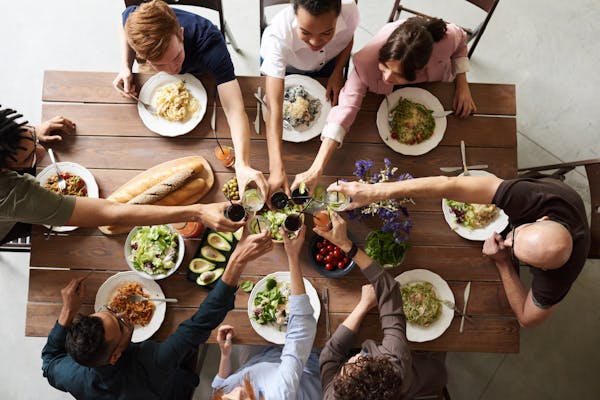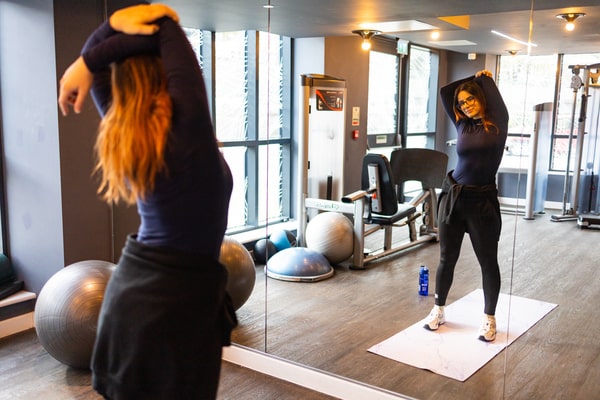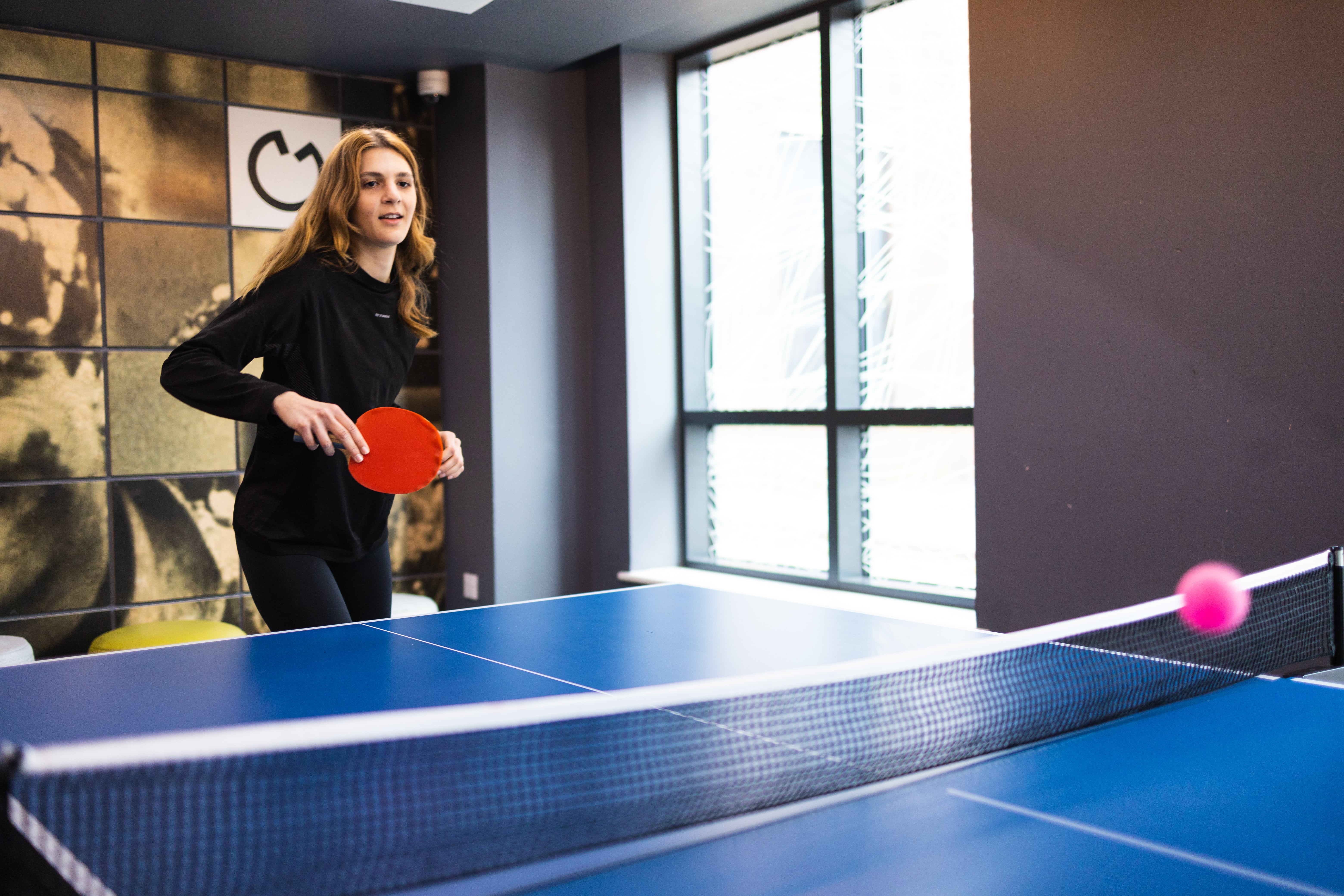Things I learned in eating disorder recovery
Please note, this article contains the following themes: restrictive eating disorders, mentions of food, and exercise.
I have considered myself fully recovered from anorexia for about six years now – the best six years of my life. Here are six things that I learnt while in recovery from my eating disorder, just in case they can help you, too.
(Please bear in mind as you’re reading that none of this is a substitute for medical advice. It’s always a good idea to consult with your doctor before making any changes that could impact your health.)
1. Food isn’t just fuel.
In recovery, I heard the phrase ‘food is just fuel’ countless times. I get its intentions – people were trying to help me see that food is something we need, nothing more. And it is definitely true that food is something our body needs and eating it does give us fuel. But it wasn’t actually that helpful a thing to say.
Because food isn’t just fuel. Or it shouldn’t be, in my opinion.
Food is community, it’s nostalgia, it’s celebration. It’s the ice cream you have on a beach holiday while listening to families playing and waves breaking; it’s the olives, bread, and crisps you grab from the supermarket on the way to a park picnic with your friends. For me, food is the apple pie I made with my grandma, baked with apples from our garden; it’s sitting down after a long day to eat something delicious and talk with my loved ones about my day; it’s the things I bake to celebrate my family and friends (and the spoons I lick when they’re in the oven).
In recovery, it often felt scary how many events and activities involved food, and how obsessed the world seemed with food in general. Now, I think it’s actually a really beautiful thing; food can bring us together in really lovely ways.

2. ‘Listening to your body’ doesn’t always work.
‘Intuitive eating’ is often held up as the best way to live. To put it very simply, intuitive eating just means listening to your body, eating when you’re hungry, and stopping when you’re full. Sounds like it makes sense, right? And, to some extent, that is what we should all be doing - we should be eating when we’re hungry, and we shouldn’t go too far past feeling full. But it’s not always as easy as that, especially if you have an eating disorder. When I was really struggling, I had no idea when I was hungry because I’d shut off that part of my brain. And so it was important that I made sure that I was eating at certain times, even when I didn’t think I felt hungry.
While I do think food should be way more than just something we put in our bodies to give us energy, it’s also okay if that’s all it is to you for a while. The most important thing is that you’ve got enough energy to keep you going throughout your day.
Sometimes now I might know that I’m getting a bit full, but I’m really enjoying what I’m eating, so I finish my plate anyway. As long as you don’t feel like you’re always pushing past that point to uncomfortable levels, I actually think it’s really healthy to eat sometimes because you’re enjoying it, not necessarily because you’re ravenous.
3. No one’s thinking about your body as much as you are.
I get it. You’re thinking about your body all the time – it makes sense that you might think others are, too.
But it’s just not true. Trust me.
If you’re honest with yourself, how many strangers’ bodies can you picture right now? How many do you think about a hundred times a day? Probably none, right? Everyone is busy living their own lives; they’re much too busy to think about the way your body looks or how big or small it may or may not be.
And while the people around you care about you and do think about you more often, I guarantee they’re not thinking about all of that stuff either; they’re much too busy thinking about the memories and jokes you’ve shared and how glad they are that you’re in their life.
Try and remind yourself of this when you catch yourself worrying about what people think. If you’re not thinking about their body, chances are they’re not thinking about yours. And if that doesn’t work, try and distract yourself with something like a favourite hobby, or talking to a friend about something completely unrelated to these thoughts. And remember, that’s all they are - thoughts. You get to decide whether you want to listen to them or to try your hardest not to. (I personally vote for the latter.)

4. A number is never going to make you happy.
I was very numbers-focused when I was struggling with my eating disorder, whether that was thinking about my weight, calories, or minutes I exercised. I just kept thinking that if only I could get to X number, then I would stop, then I’d be happy.
Turns out I was very, very wrong.
Because there are always going to be lower numbers. I’d always hit one goal and think that I was happy, but that happiness never lasted. That voice in your head always still pipes up saying, ‘Okay, now what? What are we aiming for now?’
You deserve far more than to live your life with your head full of numbers. The best thing I ever did was learn how to let go of my number obsession and instead fill my head with words. I’d remind myself that I was fine just the way I was and that I deserved more than the life I was currently living.
5. Moving your body should bring you joy.
I’m going to be honest – I’ve never really thought of myself as a super active person. When I see joggers out early in the morning, firstly I think, ‘Good for them’, and secondly, I do a little shudder at the thought of doing that myself.
The only time I was really focused on exercise was when I was deep in the throes of my eating disorder. I would force myself to do things that I didn’t enjoy and, like I mentioned earlier, it was never enough. Every day I felt like I had to push myself further and do another minute, or another set of reps. Partly because it had become an obsession and I felt like I was failing if I didn’t do it, partly because I thought it was something I had to do to change the way my body looked.
It was exhausting – physically and mentally. It took me a long time to realise this, but now that I have, I keep it in mind all the time: exercise is never going to be enjoyable if your intention is to punish yourself with it OR to alter your body in some way.
If you’re well enough to do so, exercise should be something you do because you enjoy it. I’m probably never going to be a jogger, but I do enjoy going on long walks in the countryside, and I love roller-skating; I like lifting weights and feeling myself get stronger, and I’m always down for a kitchen dance party.
Even now that I’ve been in recovery for years and years, only exercising when I want to and when it brings me joy is a really important boundary for me to keep. The second it’s not fun or I think my motivations have shifted, I stop right away.

6. The biggest moments are the ones you don’t notice until afterward.
When I turned 18, I baked myself a birthday cake. I remember thinking about how far I’d come from the girl who had an anxiety attack in a supermarket on her birthday because her mum was trying to get her to buy a cake. She couldn’t even manage to buy one, let alone eat it.
Then, when I turned 21, my mum bought me my favourite kind of cake, and I sat in the garden with my friends and ate a big slice without even thinking about it. I didn’t stop and think about how giant a moment it was - because it wasn’t. I was just a person celebrating their birthday like millions of other people do. It was only a few days afterward that I had that moment when I thought, ‘Huh, I guess I have come pretty far.’
No matter how hard things feel right now, there will come a time when you don’t even notice that you’re doing the things that used to terrify you. Maybe that also sounds scary to you. Maybe you think it’s best to be scared because that means you’re fighting back against the world, but I promise you that won’t make you happy. While it’s incredibly hard, fighting back against the eating disorder will ultimately make you happier.
I hope this article has helped you think about your own recovery and/or how to think about your body and health in a more positive way.
If this article has affected you in any way, the charity BEAT, has lots of great support available to people struggling with eating disorders. You can learn more about it here.

